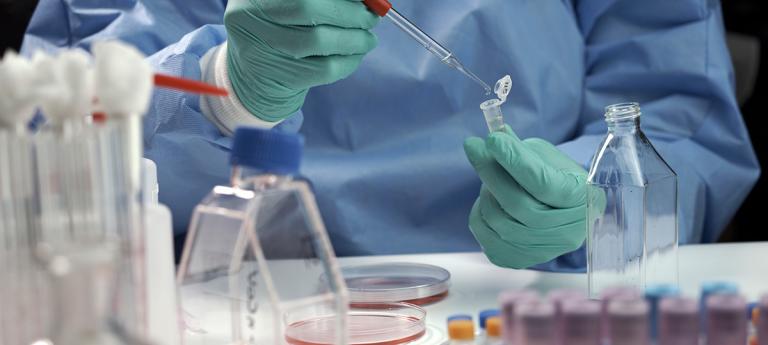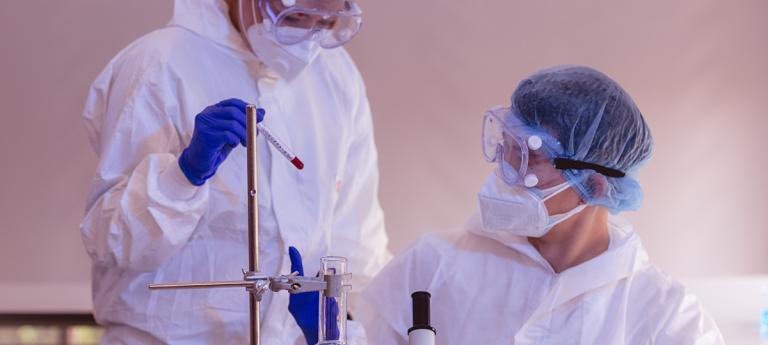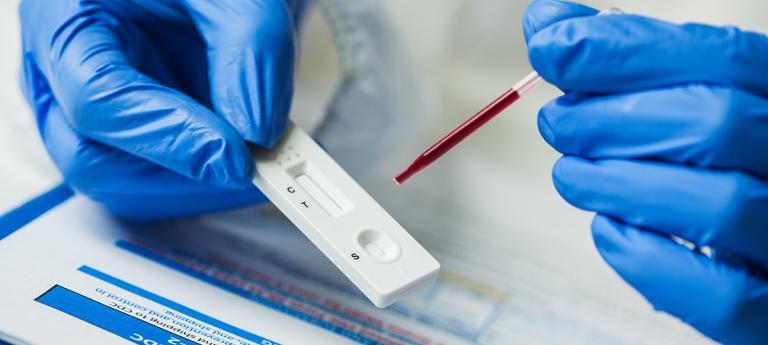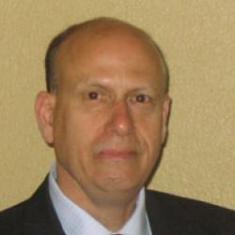What to Expect
Start your coursework in cell and molecular biology and advance from there to virology and the host response to viral infections. Smaller class sizes mean you’ll receive individualized attention and mentorship during your six years (or fewer) here.
Then put your knowledge to the test in the lab, where you’ll conduct your research. You can gain funding for HIV/AIDS research in our Center For Aids Research, which is supported through a T32 institutional research training grant. Beyond Ohio, we have an international research collaboration with colleagues in Kampala, Uganda.





